From Sofika Prifti Cara
Part fifteen
To Forgive…!
– The Old Kavajë Clan – CARA
Memorie.al /publishes several parts from the book ‘To Forgive’, authored by Mrs. Sofika Prifti (Cara), published by the Institute for the Study of Crimes and Consequences of Communism in Tirana, in which the author has described in detail and with professional competence, the history of one of the most renowned clans, not only in the city of Kavajë but also beyond – the Cara clan, from which emerged not only distinguished patriots who contributed to the national cause and the freedom of Albania, but also famous intellectuals, graduated in the West, who later returned to the homeland, contributing to various fields of science and life. However, even though the descendants of the Cara clan dedicated their lives to the national cause, after the communists came to power at the end of 1944, they would be persecuted, imprisoned, and interned, and the fierce class struggle would follow them until 1990, when the collapse of the communist regime began.
Continued from the previous issue
Once More About Xhevdeti
Xhevdeti was a very good, intelligent man; his word never fell on deaf ears; he was naturally smart. Always gentle, his words were measured and always carried weight. The two of us read a lot! After the two brothers were arrested, it was as if he was put into an iron cage. Until his death, he kept his brother’s promise regarding the children. He spoke to no one, and no one spoke to him; neither did he fear people, nor did they fear him.
He was a good photographer and even had a darkroom at home for developing films. In the years 1965–’67, when private jobs were banned by law, Xhevdeti was sent to work in Levan, Fier, as a photographer. In 1967, when the so-called “class struggle” was established and severely intensified, Xhevdeti was removed from work. After leaving him unemployed for some time, he was sent as a loading-unloading worker at the Food Enterprise, loading oil barrels (where he cut his fingers.)
Xhevdeti was a strange man: he went to and from work without ever turning his head left or right, let alone backward, but only forward, like a “cart horse”! Many provocations were made against him at work by people paid by the Internal Branch (900–1200 old Lek per month-salary for spying!!). They were forced to do it because they would be fired; the monthly salaries were small (3500–4800 old Lek), and they weren’t enough even to feed the children dry bread! The work was on a quota basis, but the quota was unattainable!
Party members would occasionally take initiatives and raise the quotas significantly, which people couldn’t meet. Xhevdeti’s brigade, in loading/unloading, would receive 900–1500 old Lek per 15 days!! He was very upset because they did porter’s work and were tired, but his colleagues received the same. The difference was that they secretly took whatever came their way: bottles of oil, margarine, biscuits, etc. that the enterprise had. Xhevdeti, however, never did that.
With Xhevdeti, I raised two children, the 4-year-old son and the newborn daughter. The children initially didn’t know who their father was. When we went to the prison to visit Bardhi, the son would say: “I’ll come too to uncle’s friend, because he gives me biscuits!” Indeed, when we visited Bardhi in prison, he would give the children biscuits from those small 10-Lek packets! Only when they grew up a bit did they learn who gave them the biscuits, because no one else gave them even a small gift there!
Xhevdeti fell ill in May 1994, and we took him to the hospital in Tirana. The doctors examined him there and admitted him for stomach surgery. He was very anemic, as I mentioned above. In Fier, they had treated him for his heart, so he was very surprised and frightened when they told him about a stomach operation. The husband of my niece came to see him, convinced him, and introduced him to a doctor who had studied in France. He was his friend. Xhevdeti agreed to be operated on. Shpëtim stayed at the hospital at night, while I stayed during the day; we took turns. We loved Shpëtim very much, and he loved us.
When he started to move, he kept mentioning Vangu and told me: “I owe Vangu so much; it’s your solemn pledge, if I can’t do it, you must repay him, because he saved me from severe pain!” Xhevdeti was operated on for his stomach, an illness caused by stress, spiritual suffering, fear that he would be arrested like his brothers at any moment, and dietary deficiencies.
When he was discharged from the hospital, he told me happily: “Now I’m saved! Bless Vangu, who convinced me, because I had a big lump that wouldn’t let me eat anything!” Bardhi and I told him: “Thank goodness you were saved, Xhevdet! For your salvation, we will host a lunch; invite as many as you want!” Xhevdeti said: “You thought well!” We didn’t have the opportunity to do anything for Irma. We married her off without having a celebration, and this has remained like a nail in my heart, because I raised her myself. (When Irma had two daughters, Xhevdeti only knew Juliana, the second, Rovena, he did not get to meet.)
Xhevdeti continued: “I want to kill two birds with one stone: celebrate Beni’s wedding and my recovery! We will not forget Vangu and the doctor. This is the first lunch we will host. This is an order, because I raised him myself; I know we don’t have much, but we will invite our closest relatives!” Xhevdeti’s lunch and Beni’s wedding were merely token celebrations! Xhevdeti never thought that death was right around the corner! After five months, we were expecting Beni’s first child. Xhevdeti, even though he was sick, said: “If it’s a boy, he will be mine; I will raise and educate him myself!” But the unfortunate man did not achieve this, because he died quickly on February 21, 1995, while the son was born on May 15, 1995.
A Good Collective
I am not at peace without respectfully writing a few lines about the collective of the Fier Food Enterprise. Xhevdeti worked at this enterprise for 26 years, but he had been gone for 6 years. I thank this collective, who had not forgotten my brother-in-law; they came and gave him much encouragement when he was sick. They came because they had learned of Xhevdeti’s operation, because they loved him. There were 15 people. Among them were a woman and a man, about whom I will write below. They came to see their colleague and to tell him the words they hadn’t had the chance to say to him during 26 years of work.
The most amusing moment was when the factory engineer said: “Xhevdet, my brother, may it pass, thank goodness you’re better, but let me tell you something else…”!”Speak,” Xhevdeti said, and the engineer continued: “As good and distinguished a worker as you have been, we as a collective never dared to tell you this and denied it to you for so many years in a row. Today we are telling you, and we should have brought you many of Comrade Enver’s works…! (Which were given to distinguished workers as a bonus in those years!!) We will come again and bring them, because they are looking for you too, Xhevdet!”
Xhevdeti laughed at his friend’s joke and said: “You came because you missed me, and I thank you very much, or to make me sick again?! Please, don’t mention that name again! I was there in Tirana when we dragged his monument.” Laughter erupted as if commanded by a spring; the jokes were numerous and varied. This was because by now people (it is 1995!) had lost their fear and had opened their mouths to wholeheartedly curse that bad system that no one loved. Even I was filled with unprecedented joy when I saw Xhevdeti laughing so much.
As I mentioned above, a woman had also come with the collective, uninvited by them (I will write about the man later). I am separating these two, and when Xhevdeti was discussed as a distinguished worker, the woman was the first to stand up, hugged Xhevdeti again, and said: “Xhevdet! They didn’t want to bring me here, but I took a seat in the car and didn’t get off. I am very much at fault toward you, but I decided to come because my conscience was killing me. I know you hate me a lot, and you have the right to hate me, because I have done you a great wrong! Please, forgive me! It was the people of that regime who forced us to do evil…! I spied on you several times, not because you deserved it, nor did I want to, but I was forced, which was not right. You filled the sacks with husks, and I tied them; you never opened your mouth to speak, as if you were mute. I’m not telling you this because I’m in your house, but I’ve told others as well, my conscience has killed me. I swear on my heart, that’s why I came. May I not find my five children at home if I don’t speak sincerely here, you were truly the best, you are the most excellent man I have ever known!”
At this point, one of the colleagues told her: “Ah! But who is the bad guy? Is he among us?!” “It was the cursed Security Operative,” the remorseful woman replied with shame. “He wouldn’t leave me alone. Say this and say that. I complained to him: ‘what should I tell you?! He doesn’t open his mouth at all.’ ‘You will regret it, we will fire you!’ he threatened me. I was afraid because I had five children, two in-laws, and two of us, husband and wife; we were nine mouths to feed. Forgive me! Forgive me!”
Tears streamed down that woman’s face like raindrops, but everything belonged to the past now. Xhevdeti, after thinking for a moment, with his typical maturity, told her: “I will also tell you directly: when I saw you enter my door, my first tooth kept its word, because our elders used to say: ‘When an enemy comes into the house, welcome him, when you send him off, tell him never to step through your door again!’ When I came to work, it hurt my eyes to look at you; I wanted the hours to fly like birds in the sky; I wanted the hours to be as short as possible. I never spoke to you; it’s enough that you understand what it means to wrong a man whose life has already hurt him so much. Since you have repented and understood the mistake, I tell you that I have forgiven you!” She hugged him again, with tearful eyes.
“Well, there you go, Xhevdeti forgave you,” a friend joked to her, “but what will you do about the Operative, whose secrets you revealed and whom you came to meet, the enemy?! Don’t you know that if you reveal the secret, you are punished by law?” Sincere laughter filled the room, and many jokes were made during the conversations. Another friend, who was once a communist, started and said: “I told Xhevdeti, ever since they made me a party candidate that I did not sign against him when they put him on trial in the neighborhood. I felt very bad, because he didn’t open his mouth at all; he would kill you with bread, not with stones, as the people say. All my life the wrongdoing would have weighed on me; now that the time has come, I would have been humiliated, because I would have lied about what I signed. I was so upset that one day I threw the party card back at them, prematurely, so as punishment, they sent me to loading-unloading with Xhevdeti, and we never parted from each other.”
“Tell me, have you changed your mind? (Xhevdeti teased him.) I am here!” “No, no, I haven’t changed my mind; I lost my job, but I gained a friend and a great relief in my soul.”
The second friend, whom I listed with that woman, was changing color. Blushing like iron being hammered on the anvil, he stood up, with a glass of raki in his hand, as if he wanted to give a toast; his hands were shaking from embarrassment, and his conscience was killing him when he said: “You know how to forgive, man! Please, forgive me too! We all knew who you were! I was a little talkative then, and a bit shallow-minded. When a breakdown happened at work, I would say the ‘enemy,’ Xhevdeti, did it, even though you had nothing to do with what happened. But that’s what we were ordered to do, so that when you said something wrong, we would interpret it with political meaning, so they could punish you. There’s only one thing I never forget: you were the last to leave work, and when you saw that body searches were being conducted at the gate, you would tell us: ‘Be careful, they are doing a body search!’ Then the workers would empty whatever they had hidden on their bodies to take home, and they would leave confidently, because they weren’t afraid of you, knowing what a good person you were. Only you never touched anything and no one ever checked you, like us. The workers spoke to each other: ‘Man, what kind of person is this?!’ We had lost our manhood, but that system humiliated us completely, made us thieves, defiled us, and made us like unsalted food. What do you say, will you clink glasses with me, your spy, so I know you have forgiven me? I came here with shame, but I spoke to you with an open heart in front of my friends…?” The glass of raki dripped drop by drop from his intensely shaking hand.
Xhevdeti took his arm in a friendly manner, as he was close, and with his characteristic wisdom said: “A proverb says: A head that asks for forgiveness is never cut off! When I saw you at the door, I wasn’t happy, but I am pleased that you understood what kind of system that was that you served and where it led you. Just one thing, the glass of raki that is spilling from your shaking hand, doesn’t say anymore that the enemy is spilling it for me! I have forgiven everyone who understood what evil they did, so I forgive you too!” He rose his glass, clinked it with his “spy,” and they embraced like children.
“You can come whenever you want,” Xhevdeti told him. “I experienced and endured that bad time, those sufferings, even though you wouldn’t leave me alone. Now the evil is locked away. May those times is gone and forgotten!” That was the tolerant spirit of my brother-in-law.
Jokes followed one another, and a friend teased the former spy again: “Well, you said it you, that Xhevdeti told us to be careful about the search, so now we will denounce Xhevdeti and you to the Operative! Because Xhevdeti protected you as a thief who stole the people’s property, that’s why our factory was running a deficit, it wasn’t meeting the plan! And you were slandering Xhevdeti…?” “I wasn’t the only one,” the wrongdoer justified himself. “We were a flock, what were we supposed to do, our salary wasn’t enough! Now, if you want, go tell the Operative, he is in Greece, he caught his breath there! But I wouldn’t do it like you, Hasan (it was the one who teased him), why aren’t you talking about yourself? Man, now that Xhevdeti has forgiven me, we will talk freely and laugh. Hasan, will you tell it, or should I…?” “Why, what did Hasan do?” asked another. “Tell it, you show it, since you are used to gossiping!” Hasan spoke as if ashamed. “We came here for Xhevdeti, we never thought what direction our conversations would take, but we are enjoying ourselves. I hope we have eased your sadness and pain a little, Xhevdet?”
“Thank goodness those times are gone, you have pleased me,” Xhevdeti expressed. The one who mentioned Hasan’s name took the floor again: “Since Hasan left it to me, I’ll say this too and then we’ll leave. This Hasan you mention, when he couldn’t steal anything inside the enterprise, he would look here and there with fear in his heart, and then he would pluck a bunch of grass in the enterprise yard and put it in his pockets, so he wouldn’t go home empty-handed! It had become a habit not to leave the enterprise without grabbing something. I had seen him several times collecting grass, and one day I told him: ‘O Hasan, why are you looking around and then plucking grass and putting it in your pockets?! It’s just grass; no one will say anything to you, fill a bag and take it! You are in an apartment building, you don’t have a lamb or a rabbit, or are you going to stuff a mattress with grass?!'”
Another teased him: “Or did you buy a donkey foal and leave it on the terrace, and you’re preparing a haystack for winter!” While another told him: “Be careful, Hasan, don’t let the foal fall from the terrace and kill people down there, because you’ll be punished!” Everyone laughed, joking with Hasan, and he laughed even harder, and then said: “That time passed, and may it never come again! And, what can I say, if you’re used to it, you can’t stop! Even I, when I didn’t grab anything for the house, I took the grass to shut my wife up. There were times when I didn’t even take grass, but as soon as I entered the house, my wife would say: ‘Has! What did you bring us today? You didn’t bring anything again?’ I would say: ‘Here, I brought grass, we will eat grass!’ Then she would lash out at me with words: ‘You’re not as capable as your friends,’ ‘you’re a fool,’ etc., and throw the grass outside.”
The collective stayed at our house for 3–4 hours, and I tried to honor them as best as I could. We talked and laughed a lot; Xhevdeti’s complexion had returned. When his friends left, he told me happily: “Sofi, I am so happy that they haven’t forgotten me at all at the enterprise. With the stories they remembered here, we laughed until we cried. Now my appetite has returned; I want to eat.” He ate very little. He was happy! His friends promised to come again.
The Arrival of the American Ambassador
As soon as the Democratic Party came to power, Bardhi and his friends created the branch of the Association of Former Politically Persecuted and Imprisoned. Bardhi was unanimously elected Chairman of the Association of the Former Politically Persecuted and also of Human Rights. One day, in those early stages, the Ambassador of the United States of America was invited to a Bektashi teqe (shrine) in the “Sharrë” neighborhood. The inauguration of this new teqe was taking place. Bardhi was also invited there. There he met the Ambassador and talked briefly. Bardhi, as a chairman with two functions at the time, extended an invitation to the Ambassador, and he accepted with great pleasure. And he kept his word; on the day he said, he came to Kavajë.
The US Ambassador, Mr. William Ed Wir Rayerson, had brought his wife and an escort. We brought a good family friend as a translator, the well-known cardiologist, Petrit Teferiçi, whose father-in-law, from Fier, had been in prison with Bardhi for 15 years, but did not make it out, as he died in prison. He was a gentleman whose friends were rare, this unfortunate man, named Petro Rondo, and he was a very capable pharmacist. The Ambassador had his own translator, but he also knew how to speak Albanian very well himself. Our translator, Petrit Teferiçi, was married to Petro’s daughter, Ana, an excellent person and teacher, so much so that even though she lives in Tirana today, she is constantly mentioned in Kavajë. The two had formed a special couple, respected people. Mr. Osman Kazazi, the Chairman of the National Association of the Former Politically Persecuted, came from Tirana.
Everyone here knows that the people of Kavajë welcomed Ambassador Rayerson wonderfully and with applause. In his honor, and out of respect for the American state, the people named the square in Kavajë “America Square.” Bardhi invited the distant friend, a well-wisher of Albanians, for lunch at home, and he accepted with pleasure. All the leaders of Kavajë participated in the rally held at the square. After the rally ended, we came home, which was on the fourth floor. Not only the house and the stairs, but also the area below the building, was full of people. Everyone thought it was a miracle, an unbelievable dream, that an American Ambassador came for lunch to a simple house, to a family that had just been freed from the shackles of the “class struggle.” Such a thing had never happened during Enver’s time. We talked heartily and took a photograph.
We ate lunch and continued the simple and friendly conversations for that time. The Ambassador did not need a translator; he knew Albanian well. Bardhi asked him to do something for Kavajë, as the cradle of democracy. During the conversation, it was said that Kavajë was the first in Albania to ignite the spark of the fight against the red regime. Kavajë was the first to kill fear. That simple lunch, with warm conversations, lasted a long time, and the hours passed unnoticed. Bardhi told the Ambassador the history of the family and his father, who lived in Australia and whom he wished to visit. Mr. Osman Kazazi also spoke well of Bardhi’s father to the friend, mentioning that they had been together in the “National Front” party. At one moment, the American Ambassador told Bardhi: “If you want, I will take you and your whole family to America!”
The Ambassador expressed great satisfaction with our hospitality, but the hospitality of the people of Kavajë was also unforgettable for him. He gave us his phone number and told Bardhi to call him after thinking about visiting America. When he went down to the area below the building to leave for Tirana, he was surprised by the many people who were outside, who escorted him with cheers, applause, and kind words for America. Xhevdeti didn’t know what to say; he was flying with joy at the thought of visiting America. But we couldn’t go, because we wanted to go to Australia to see our father. Memorie.al




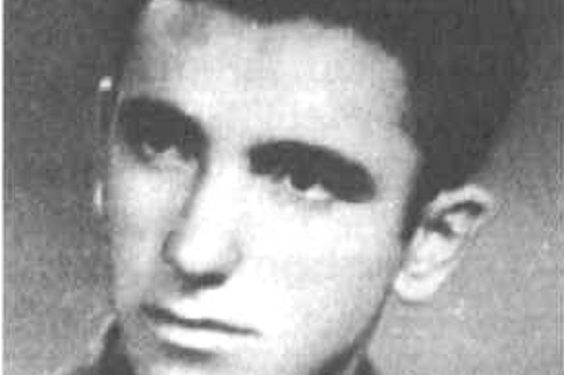
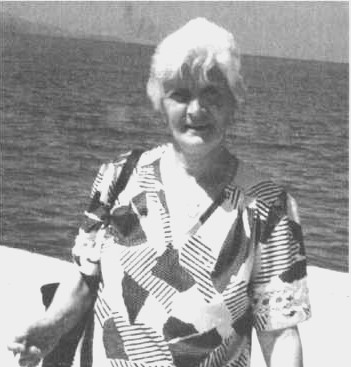
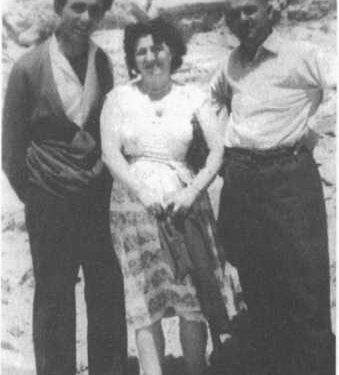
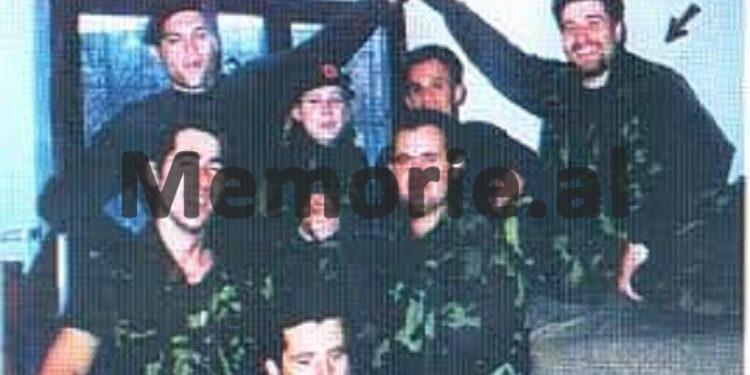
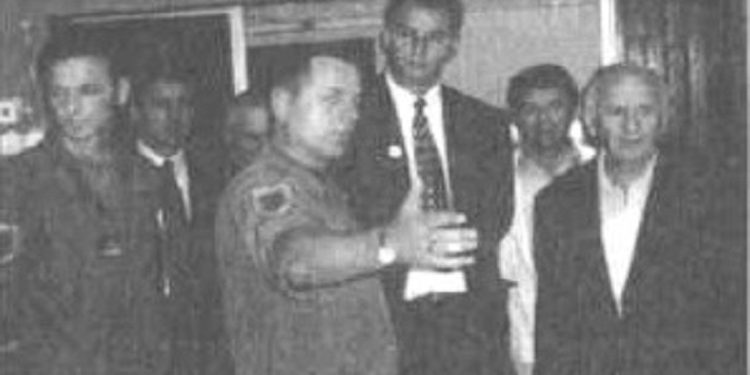
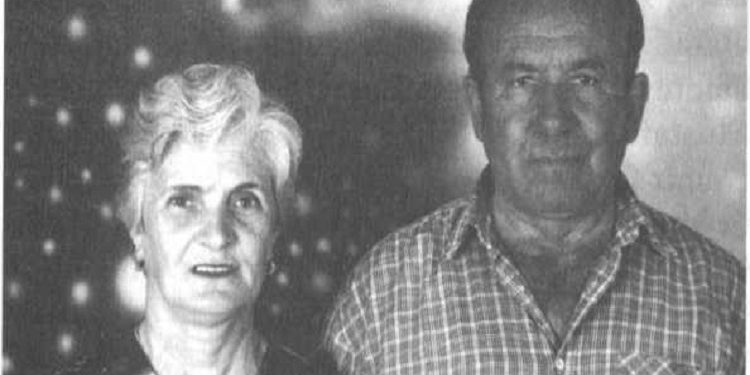
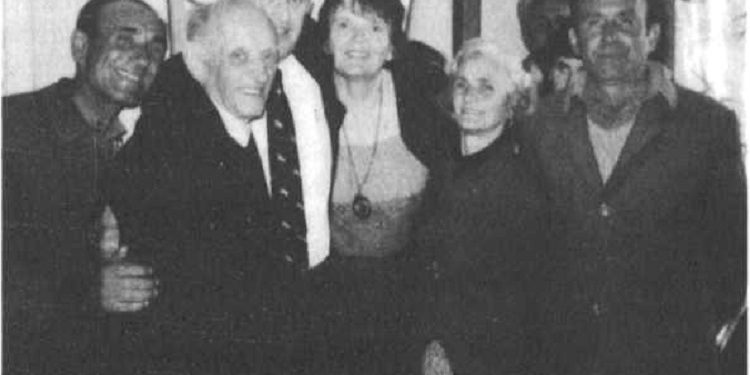
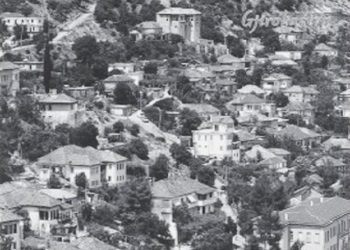
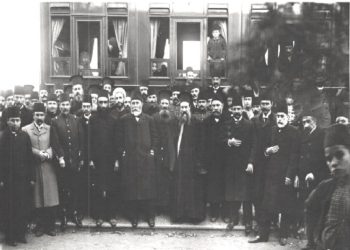
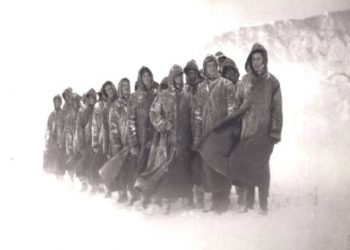

![“When the party secretary told me: ‘Why are you going to the city? Your comrades are harvesting wheat in the [voluntary] action, where the Party and Comrade Enver call them, while you wander about; they are fighting in Vietnam,’ I…”/ Reflections of the writer from Vlora.](https://memorie.al/wp-content/uploads/2025/06/admin-ajax-4-350x250.jpg)

